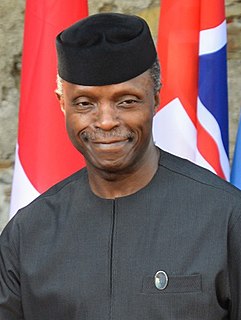A Quote by Amy Lockwood
Economist and Africa expert Collier analyzes why a group of 50 nations, home to the poorest one billion people, are failing. Considering issues such as civil war, dependence on extractive industries, and bad governance, he argues that the strongest industrialized countries must enact a plan to help with international policies and standards.
Related Quotes
Both rich and poor nations have a common stake in policies that put the globe on a sustainable development path. The conflict is less between poor and rich countries than between the broad interests of people and the narrow interests of extractive industries. We need to find our way towards some kind of global regime that reduces emissions of the greenhouse gases, but well-off nations need to transfer the technology to make this possible, rather than viewing this shift as one more opportunity for private industry to profit.
The UN should arrange, as US forces leave, for an international group of peacekeepers and negotiators from the Arab countries to bring together Shiites, Sunnis and Kurds, and work out a solution for self-governance that would give all three groups a share in political power. Simultaneously, the UN should arrange for shipments of food and medicine, from the United States and other countries, as well as engineers to help rebuild the country.
The wealthiest 300 people have greater riches than the three billion poorest. The three wealthiest people have greater riches than the 48 poorest countries put together. With only limited environmental space to accommodate the expected 9 billion human inhabitants of the world by 2050, such disparities in consumption are clearly not sustainable
Industrialized countries have disproportionately more cancers than countries with little or no industry (after adjusting for age and population size). One half of all the world's cancers occur in people living in industrialized countries, even though we are only one-fifth of the world's population. Closely tracking industrialization are breast cancer rates, which are highest in North America and northern Europe, intermediate in southern Europe and Latin America, and lowest in Asia and Africa.
By international standards, many of the U.K.'s policies for civil society are exemplary. However, there are concerns about constraints on civil liberties - particularly restrictions on free assembly and about the rising tide of everyday regulation has seriously impeded community activity - from organising street parties to helping children.
President Obama has said that our aspirations should be realistic. We are not going to turn one of the poorest countries in the world, that was plunged into 30 years of war, into an advanced, industrialized, Western-style democracy. What we want to achieve is Afghanistan's capacity to secure and govern itself.
We've demonstrated in modern countries or industrialized countries that women can do what men can do, but we have not demonstrated that men can do what women can do therefore children are still mostly raised, hugely mostly raised by women and women in industrialized modern countries end up having two jobs one outside the home and one inside the home.
The bad economist sees only what immediately strikes the eye; the good economist also looks beyond. The bad economist sees only the direct consequences of a proposed course; the good economist looks also at the longer and indirect consequences. The bad economists sees only what the effect of a given policy has been or will be on one particular group; the good economist inquires also what the effect of the policy will be on all groups




































